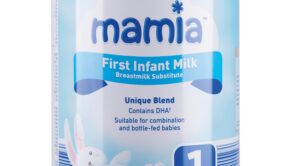In the papers this week 5 – 11 Dec 2009

Alcohol cuts are toast of the town but raise health fears, experts warn Lenihan's plan won't work, Northern Ireland out of recession thanks to Irish shoppers
11 December 2009
Cuts in excise that will reduce duty on spirits by around €2.75 per bottle, beer by 12c per pint and wine by 60c a bottle, have been welcomed by the Vintners’ Federation of Ireland and Drinks Industry Group of Ireland reports The Irish Independent. However Alcohol Action Ireland (AAI) have opposed the tax cut, claiming over half of Irish drinkers already take harmful amounts. The government’s decision to leave cigarette prices unchanged in a bid to stamp out smuggling, was also criticised by health groups.
IBEC-affiliated Retail Ireland has welcomed the reduction in excise, on the grounds that it will go some way towards reducing the numbers of shoppers going North for bargains. Director Torlach Denihan is quoted in The Irish Examiner pointing out that, “according to the Commission on Taxation, Irish consumers are subject to among the highest alcohol taxes in Europe and this has been a major factor in encouraging cross-Border shopping.”
However experts in Northern Ireland have claimed Brian Lenihan’s bid to put the brakes on cross-border shopping trips is likely to fail. The Evening Herald reports that industry observers predict the Government’s VAT and excise reductions will be cancelled-out by the favourable exchange rates between the euro and Sterling, plus the rock-bottom prices that major supermarkets charge for alcohol in the North.
Northern Ireland’s economy has already emerged from recession, boosted by shoppers from the Republic, a new report by Northern Bank has revealed. The Irish Independent reports that the North’s economy picked up before the rest of Britain or Ireland, and was set to grow 0.9% this quarter and 1.2% in 2010 as a result of increased cross-border trade, government stimulus packages and sterling’s decline against euro.
However the Irish Independent also reported this week that the PSNI has urged retailers to review their security amid concerns that dissident republicans could mount a Christmas bombing campaign. Intelligence chiefs have confirmed that dissidents, particularly the Real IRA, who number around 700, have access to a store of weapons and explosives and are being helped by disaffected members of the Provisional IRA in their bid to murder members of the security forces. These warnings follow security alerts which brought sections of Belfast to a standstill on Monday morning.
Tesco has posted quarterly sales growth towards the bottom end of forecasts, reports The Irish Times. However finance director Laurie McIlwee said he did not expect the UK Government’s VAT reversal to derail recovery, although he warned against raising the rate above its former 17.5% level. The supermarket giant which has more than 4,300 stores in 14 countries, also claimed group sales rose 8.8% excluding petrol, with strong growth in Asia offsetting a flat performance in Europe.
While the cost of living remained stable last month, prices are down 5.7% on last year, the latest CSO figures have revealed. The Irish Independent reports household costs, including housing, electricity and fuel bills, dropped by a quarter in the last 12 months, with clothing, footwear, food, home furnishings and maintenance also down. However education, health and transport costs have risen, and although alcoholic drinks and cigarettes fell slightly in November, they are still 2.7% higher than last year.
UK retail sales values rose at their slowest annual pace last month since August, according to The British Retail Consortium on BusinessWorld.ie. The group found the value of like-for-like sales rose 1.8% in November compared with a year ago. Director general Stephen Robertson said much higher growth was expected, “because the comparison was with very poor results in 2008 when November was the second worst performing month of the year." A fall in food price inflation was also found to hit food retailers’ sales, which grew at their slowest pace since July 2007.
Farm incomes will drop by 30.3% in 2009, an advance estimate from the Central Statistics Office (CSO) has shown. The Irish Times outlines CSO figures across all farming sectors, in a situation which the Irish Farmers’ Association has described as the worst since Ireland joined the EEC in 1973.
Unless urgent action is taken, by 2030 there will be more than eight million tobacco-related deaths a year, according to the World Health Organisation (WHO). Norma Cronin of the Office of Tobacco Control (OTC) writes in The Irish Times, that considering eight out of 10 Irish smokers start in their teenage years, it is heartening that research shows young people’s recall of in-store tobacco advertising is already beginning to fade since the ban was introduced in July. However she is concerned that one-third of retailers and licensed vending machine operators are still prepared to sell tobacco to minors.
A survey carried out by the Meath Chronicle, which found 300 Meath-registered cars parked outside just two Northern Ireland supermarkets last Saturday, has prompted businesses to urge shoppers to hold back at least a portion of their spending for the local economy. Cllr Peadar Tóibín claimed that 600 jobs had been lost in Meath’s retail sector this year and warned that many hundreds more will be in a precarious position in 2010.
A garda suffered slash wounds to his face this week, after courageously confronting a knife-wielding thief attempting to rob a convenience store. The Irish Independent reports plainclothes garda Robert Duffy, was on duty when he passed a Eurospar on Dublin’s South Circular Road, and intervened after seeing a man threaten terrified staff with a knife. Garda representatives said the assault shows the need for greater protection measures for gardaí, including stab-proof vests, the asp (baton) and pepper spray.
Largo Foods expects to make a net profit this year in spite of sales in Ireland of its leading snackfood brands, including Tayto, King and Hunky Dorys, remaining flat at about €76 million. The Irish Times reports that while the company’s sales haven’t grown here, that they’re up 27% in the North. Largo’s current crisp brands currently have a market share of 47% and owner Ray Coyle has said he would be happy if the company could manage to hold sales at this level.
Convenience food group Greencore suffered a sharp hit to its share price earlier this week, as it emerged that 29.5% of the group’s equity is about to be placed with new investors. Dutch bank ABN Amro Holding is to acquire Ulster Bank’s former holding. The Irish Examiner also reports the group has ambitions to grow its US business to between $750m (€508m) and $1bn (€680m) in five years, to equal its European sales, and could also be close to selling its extensive malting business to Soufflet Group of France.
Last week’s trading update from Cuisine de France owner Aryzta, showed food revenue in the UK and Ireland was down 25% on last year during Q1, as a result of substantially reduced consumer spending and customer accounts being terminated due to credit concerns. The Sunday Tribune reports that this compares to an average decline in food revenues of 11.4% in Europe and 2.1% in North America.
The budget cuts in public service pay, allied to the reduction in social welfare payments, could result in one fifth of retail businesses closing down across Galway city and county. That’s the verdict of business and union leaders in local paper the Connacht Tribune. It has been estimated that there are around 15,000 working in the public service sector in Galway city and county and the wage cuts announced will therefore have a significant impact on the local economy.



 Print
Print






Fans 0
Followers